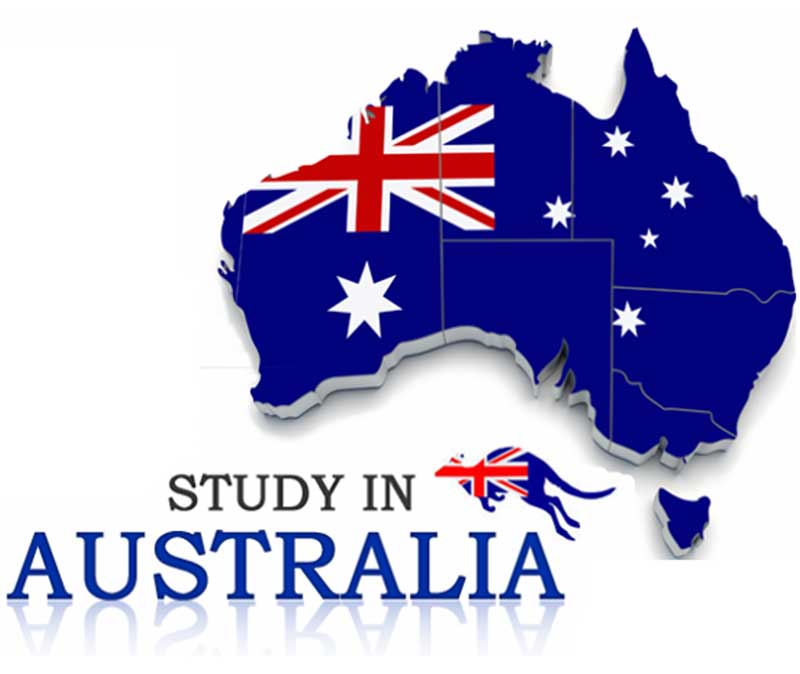WHY AUSTRALIA
- Internationally recognized courses worthy of giving a successful and prominent future to graduates across the globe.
- A country full of confident and vivacious people. It’s a multicultural country guaranteeinga safe atmosphere to international students.
- Study-stimulating ambience with high educational standards.
- AQF authorized(Australian qualification framework)courses for international students.
- Living and tuition expenses are lower than most other countries.
- Allowed 20 hours a week to earn, gain knowledge and meet variety of people.
- High visa success rate.
- Migration is given preference.


SYSTEM OF EDUCATION
Australian education is categorized into the University, Vocational and English language sectors.
Universities are at the highest level of study for undergraduates, postgraduates,diploma and PhD degree holders.
Vocational institutes working in collaboration with industries for practical and skill-based education .Vocational courses are funded by government at both government and private institutions.
Around 100 private English language centers providing English language courses for studying, travelling, immigration and business purposes. These courses are also offered by some universities and TAFE institutes.
ADMISSION ELIGIBILITY
By considering the level and content of the study student have completed in their home country; institutions will judge whether students meet the selection criteria set for proposed course of study.
Undergraduates will require an Australian Senior School Certificate of Education (year 12) or the overseas equivalent of Australian high school matriculation, such as threepasses at GCE A levels in appropriate subjects.Some courses may also have fewpre-requisite subjects. Postgraduate courses require satisfactory completion of a first degree at undergraduate level. Confirmed research ability or relevant work experience may also be taken into consideration.
ENGLISH LANGUAGE REQUIREMENTS
Students must have a sufficient level of English language proficiency and must meet minimum academic qualifications to get an Australian study visa. Australian institutions prefer student having an appropriate level of English prrficiency. The IELTS requirements may vary from institute to institute than those required for a student visa.
VISA PROCESS
Students can either apply for a electronic visa or a paper visa. Students have to pay visa application fee through E-lodgement(only through credit card) and VFS charges or in paper visa along with visa application fee student should pay the VFS charges.
Form 157A ,form 956,form 1282,passport copy of applicant (biodata page, address page and any observation page[if applicable]),passport size 4 photographs, all educational documents of applicant along with IELTS score card, declaration on affidavit from student, document of employment (previous work experience or if sudent is currently working somewhere then those documents). Statement of purpose and any supporting documents for the visa file must be submitted.
Sponsor’s affidavit is must from sponsor, photo ID proof of sponsor(Election ID, ration card, PAN card or driving license) ,ITR’s for last three years and income proof.
Students fund should be shown according to the programme, subclass and assessment level they have chosen and living expenses-18,610/- A $ per annum and travel expenses 2,000 A $.
HOUSING AND ACCOMODATION
Students can accommodate themselves both on and off campus. Australia has a excellent standard of accommodation varying from halls of residence, boarding schools, home stays and rented houses, apartments or rooms.
University accommodation : Most universities provide a variety of accommodation on or near by campus such as university apartments, residential colleges or halls of residence. Halls of Residence-cheaper and a popular option with full-time international students. Residential colleges-includes meals, library, computer access, sporting and social facilities. It is usually for full-time students and students are advised to apply early as these are usually high in demand.
Homestay: Students live with a local family during the course of study. Students are welcomed into the home as a member of the family, participating in all daily routines of the family. Inclusive of food and electricity. (Mon-Fri breakfast and dinner, Sat & Sun three meals)
Shared / Rental accommodation: Students often share with fellow students and may have to provide their own furniture. Students usually advertise for room wanted or a room available in newspapers and notice boards on campus.
